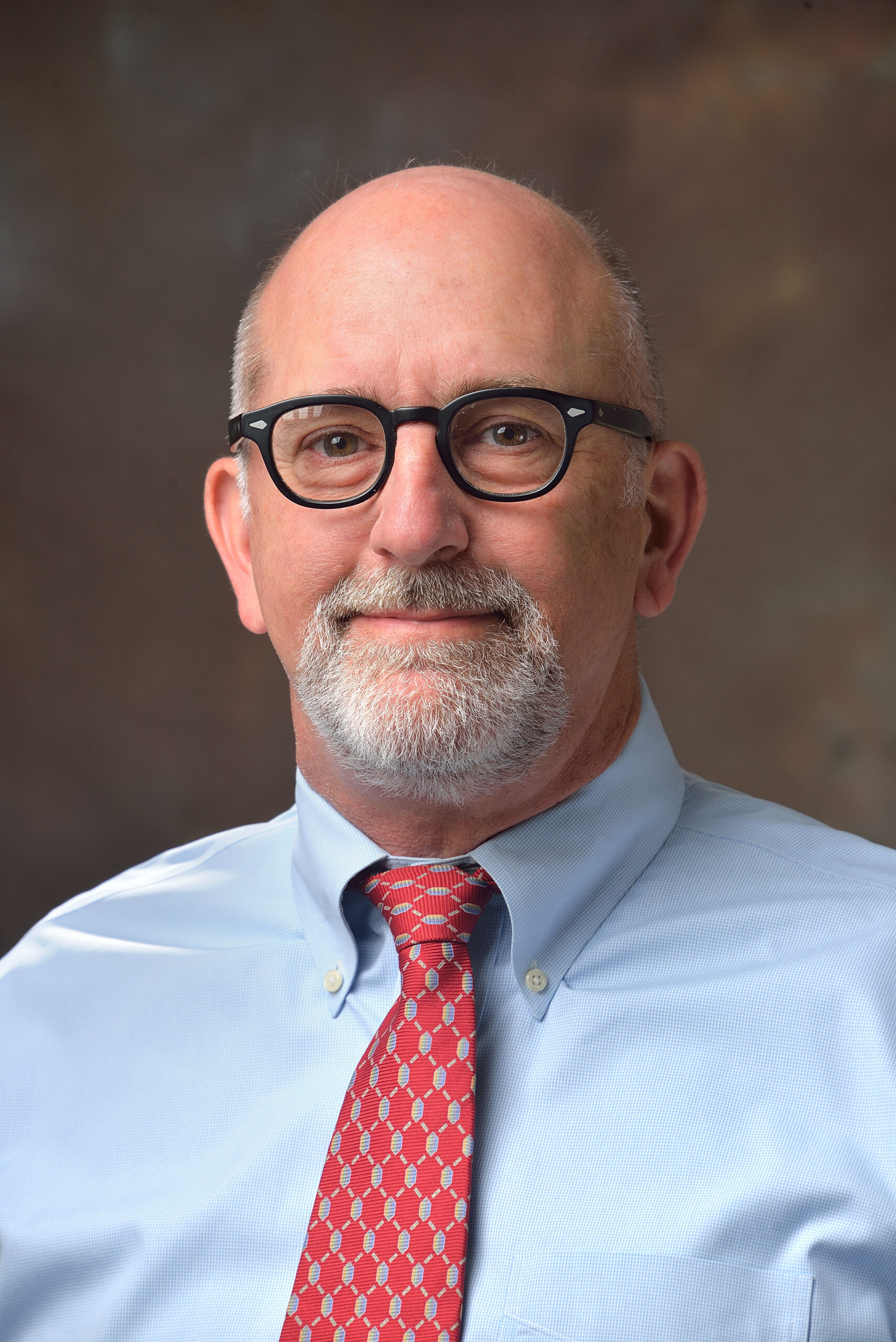
Daniel A. Hammer
Inaugural Director, Penn Center for Precision Engineering for Health
Alfred G. and Meta A. Ennis Professor of Bioengineering, University of Pennsylvania
Research Focus
The Hammer laboratory works in two major areas: quantitative immunology and protocell design. It develops methods and models for studying immune cell function, such as adhesion and motility, and how these processes can be manipulated in cell therapy, such as CAR T cell therapy. The laboratory is also developing synthetic cells (protocells) that display autonomous motility, and is developing methods for building architectures of synthetic cells, such as membranes made from novel surfactants and membraneless organelles from coacervating proteins.
Education
B.S.E. Chemical Engineering, Princeton University, 1982
Ph.D. Chemical Engineering, University of Pennsylvania, 1987
Awards
1987 NSF Presidential Young Investigator Award
2006 BMES Distinguished Lectureship Award
2018 Penn Provost Award for Ph.D. Advising and Teaching
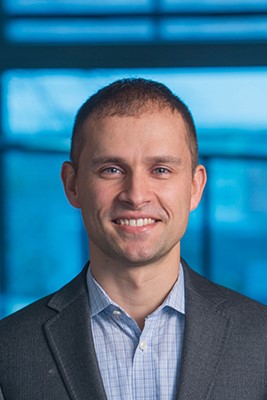
Lukasz Bugaj
Assistant Professor of Bioengineering, University of Pennsylvania
Research Focus
The Bugaj lab studies how cell signals and their dynamic patterns govern cell decisions, both in normal physiology and in disease. Towards these aims, we engineer molecular technologies to perturb cell signals with precision using either light (optogenetics) or temperature (thermogenetics) as inputs. We have a particular focus in understanding and harnessing protein condensation, both for its use in light- or temperature-inducible proteins, as well as for studying the role of such protein assemblies in cancer signaling, stress responses, and response to therapy.
Education
Ph.D. Bioengineering, University of California, Berkeley/San Francisco, 2014
B.S.E., M.S.E. Biomedical Engineering, Johns Hopkins University, 2008
Awards
2022 NSF CAREER Award
2022 BMES CMBE Rising Star Award
2021 NEMO Prize
2016 Arnold O. Beckman Postdoctoral Fellowship
2013 Regeneron Prize for Creative Innovation, Runner-up
2012 Siebel Scholar, UC Berkeley

Pranam Chatterjee
Assistant Professor of Bioengineering, University of Pennsylvania
Assistant Professor of Computer and Information Science, University of Pennsylvania
Core Faculty, Penn Center for Precision Engineering for Health
Research Focus
In the Programmable Biology Group, we develop new generative AI models for the de novo design of peptide and protein biologics, spanning from algorithmic theory to pre-clinical validation in vitro and in vivo. Our lab applies these generative tools broadly to protein targeting, genome editing, and cell engineering, with a particular emphasis on therapeutic interventions for rare neurodegenerative diseases, pediatric sarcomas, viral infections, infertility, and substance use disorders. By integrating biologically-informed priors and application-specific sampling methods, we aim to advance state-of-the-art sequence models to pioneer treatments for previously intractable diseases.
Education
S.B. Computer Science and Molecular Biology, Massachusetts Institute of Technology, 2016
S.M. Media Arts and Sciences, Massachusetts Institute of Technology, 2018
Ph.D. Media Arts and Sciences, Massachusetts Institute of Technology, 2020
Awards
2024 Maximizing Investigators’ Research Award
2022 Hartwell Individual Biomedical Research Award
2019 Top Young Scientist Award in Genome Engineering

Xue (Sherry) Gao
Associate Professor of Chemical and Biomolecular Engineering, University of Pennsylvania
Secondary Appointment in Bioengineering, University of Pennsylvania
Core Faculty, Penn Center for Precision Engineering for Health
Research Focus
The Gao laboratory is dedicated to advancing the development of highly specific and potent genome-editing tools with broad applications in disease treatment, diagnostics, and the exploration of novel small-molecule drugs. Our research focuses on the engineering of precision and multiplex CRISPR genome-editing techniques, which not only offer a safe and effective approach to addressing genetic disorders but also hold promise for engineering microbial and plant genomes, enabling the production of innovative small molecules with therapeutic potential. In addition to our genome-editing efforts, our laboratory is at the forefront of engineering ultrasensitive viral detection systems. By leveraging enhanced CRISPR systems, we aim to significantly improve the accuracy and timeliness of viral diagnostic methods, particularly in the context of pandemics and epidemics. Our mission is to contribute to cutting-edge research that has the potential to revolutionize molecular therapy, genetic engineering, and diagnostics, ultimately benefiting healthcare and biotechnology industries.
Education
B.S. Pharmaceutical Engineering, Tianjin University, 2005
M.S. Pharmaceutical Engineering, Tianjin University, 2007
Ph.D. Chemical and Biomolecular Engineering, University of California, Los Angeles, 2013
Awards
2020 NIH Maximizing Investigators’ Research Award
2022 NSF CAREER Award
2022 Invitee to US-China Frontiers of Engineering Symposium, National Academy of Engineering
2024 BMES Cellular and Molecular Bioengineering (CMBE) Rising Star Award

Alex J. Hughes
Assistant Professor, Department of Bioengineering, University of Pennsylvania
Secondary Faculty, Department of Cell & Developmental Biology, University of Pennsylvania
Research Focus
The Hughes lab works to bring developmental processes that operate in vertebrate embryos and regenerating organs under an engineering control framework, so that we can build better tissues. We study how cells conspire to create complex structures, so that we can build models of human disease, reconstituted tissues for regenerative medicine, and new types of biological machines. Our current focus is on deriving engineering principles of kidney development that can be applied in new tissue and organoid approaches to synthetic kidney replacement.
Education
B.Sc. Pharmacology, University of Auckland, New Zealand, 2008
B.E. Chemical & Materials Engineering, University of Auckland, New Zealand, 2008
Ph.D. Bioengineering, University of California, Berkeley, 2013
Awards
2023 BMES-CMBE Rising Star Junior Faculty Award
2021-2026 NSF CAREER Award
2021 Penn Nemirovsky Engineering and Medicine Opportunity (NEMO) Prize
2015-2018 Jane Coffin Childs Medical Research Postdoctoral Fellowship
2014 Society of General Physiologists Scholar, MBL, Woods Hole
2012-2013 Siebel Scholarship
2009-2012 National Defense Science and Engineering Graduate (NDSEG) Fellowship
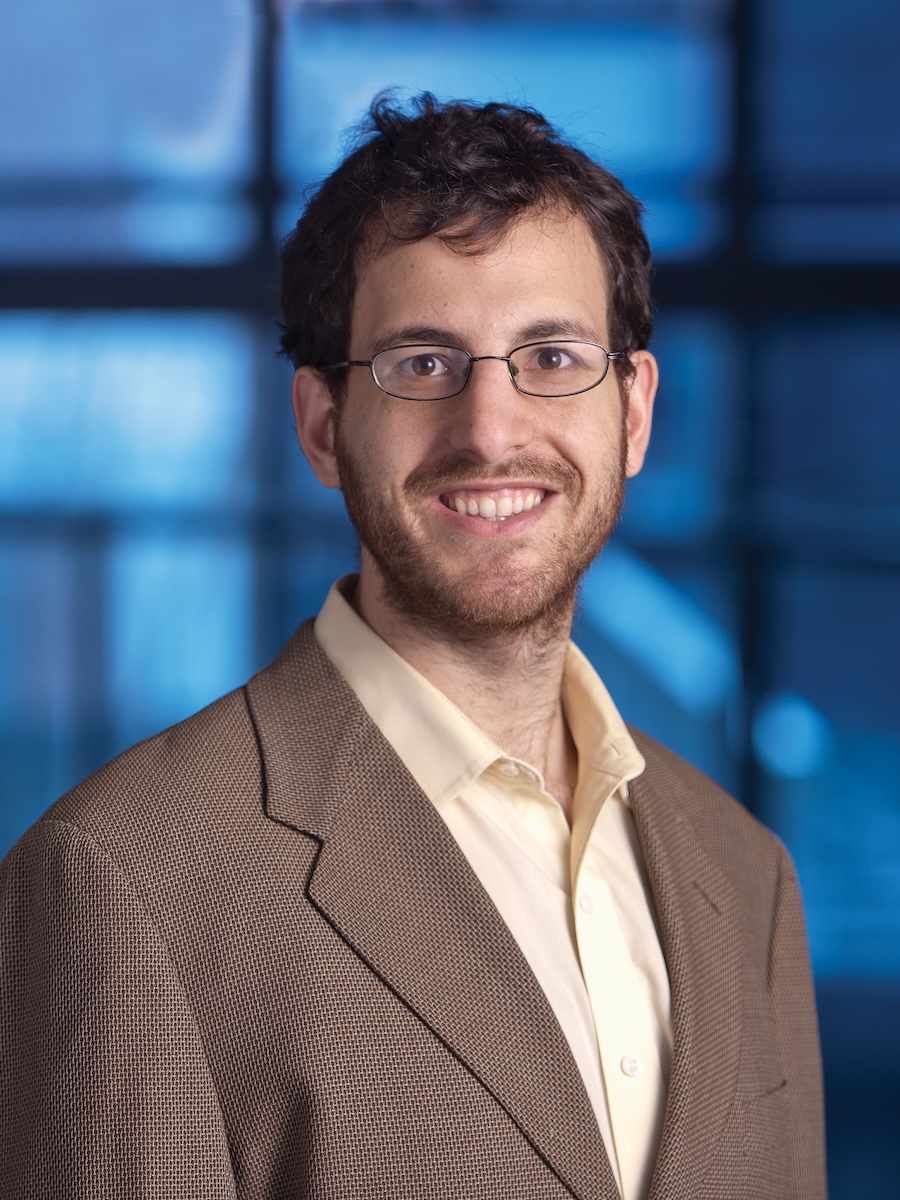
David Issadore
Professor of Bioengineering, University of Pennsylvania
Secondary Appointments in Electrical and Systems Engineering, Chemical and Biomolecular Engineering, and Mechanical Engineering and Applied Mechanics, University of Pennsylvania
Core Faculty, Penn Center for Precision Engineering for Health
Research Focus
The Issadore lab combines microelectronics, microfluidics, nanomaterials, and machine learning to solve big problems in healthcare. We create miniaturized platforms for the diagnosis of disease, we develop new platforms to manufacture micro and nanomaterials, and we dip our toes into an assortment of other areas where we can leverage our engineering training to improve healthcare. This work requires an interdisciplinary approach in which engineers, scientists, and physicians work together in teams.
Education
B.S. Physics and B.S. Electrical Engineering, Schreyer’s College at Penn State University, 2004
Ph.D. Applied Physics, Harvard University, 2009
Awards
2014 S. Reid Warren, Jr. Award, in recognition of outstanding service in stimulating and guiding the intellectual and professional development of undergraduate students
2016 National Science Foundation CAREER Award
2023 Pioneer in Miniaturization Lectureship
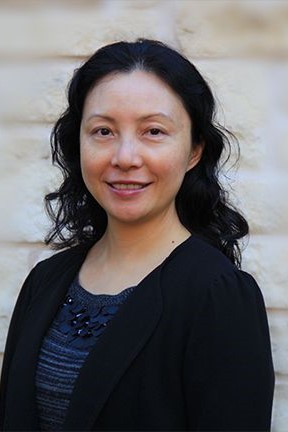
Jenny Jiang
J. Peter and Geri Skirkanich Associate Professor of Innovation, Bioengineering, University of Pennsylvania
Executive Committee Member, Penn Institute for Immunology and Immune Health, University of Pennsylvania
Core Faculty, Penn Center for Precision Engineering for Health
Research Focus
My lab focuses on using a systems biology approach to study immunology. A dysfunctional or dysregulated immune system not only fails to offer protection, it can also introduce unnecessary immune responses such as allergies or autoimmune diseases. The key to immune modulation and engineering and regenerative medicine is to understand how the normal immune system works. However, a full understanding of the complex interactions among immune cells and between immune cells and cytokines and chemokines requires a quantitative and systems approach.
Over the years, we have developed a suite of tools from characterizing biophysical interactions of antigen receptors and their cognate ligands to multi-dimensional profiling single T cells linking their antigen specificity to their transcriptome profiles. Using these technologies in combination with quantitative analysis, we are interested in answering the following questions: How does the immune system develop and age? What are the molecular signatures of autoimmune diseases? Why does the immune system tolerate tumors? What do T cells do in the brain of neurodegenerative diseases? Answers to these questions are important in establishing metrics for immune health and providing biomarkers for diagnosis and therapeutic development.
Education
B.A. Biochemical Engineering, Shanghai University, 1999
Ph.D. Biomedical Engineering, Georgia Institute of Technology, 2005
Awards
2007 The Arthritis Foundation Postdoctoral Fellowship
2011 NIH Pathway to Independence Award (K99/R00)
2012 Cancer Prevention and Research Institute of Texas (CPRIT) Scholar
2015 Damon Runyon Cancer Research Foundation Damon Runyon-Rachleff Innovation Award
2017 Rising Star Award, Cellular and Molecular Bioengineering Conference
2017 NSF CAREER Award
2018 The American Association of Immunologists Early Career Faculty Travel Grant
2019 Chan Zuckerberg Initiative Neurodegeneration Challenge Network Ben Barres Early Career Acceleration Award
2019 The National Academy of Medicine’s Emerging Leaders in Health and Medicine Scholar
2021 Elected to American Institute of Medical and Biological Engineering
2021 Cancer Research Institute Lloyd J. Old STAR Award
2022 Elected as a conference co-chair for the 2024 Cellular and Molecular Bioengineering Conference
2024 Elected as the council Chair for the Cellular and Molecular Bioengineering Significant Interest Group of Biomedical Engineering Society
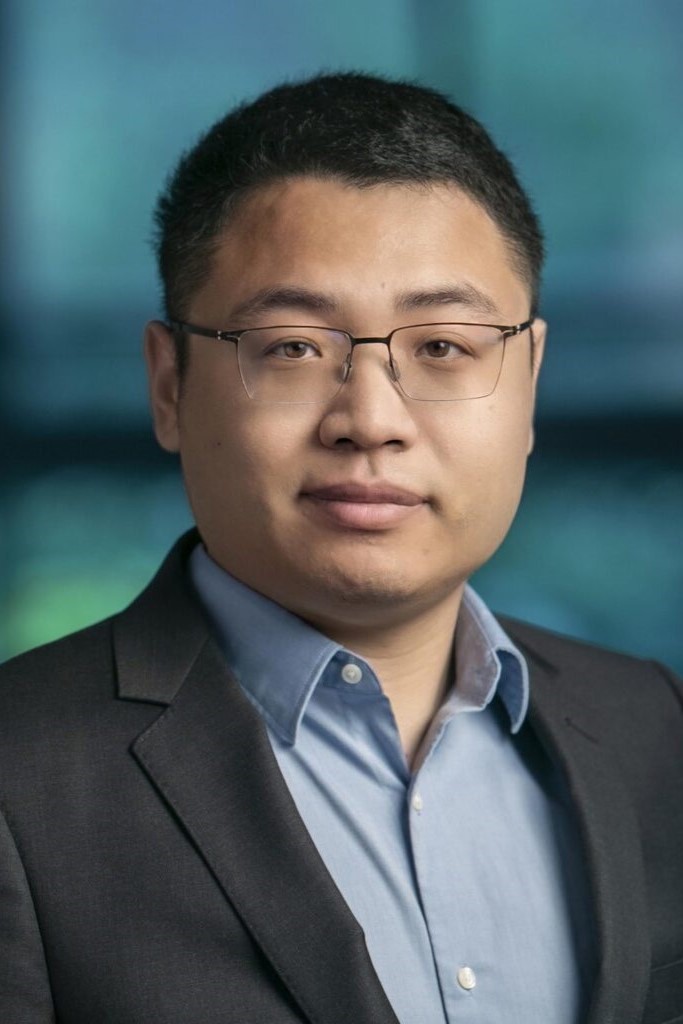
Yuanwen Jiang
Assistant Professor of Materials Science and Engineering, University of Pennsylvania
Core Faculty, Penn Center for Precision Engineering for Health
Research Focus
The Jiang Group is an interdisciplinary team working in the field of bioelectronics, with people from materials science, molecular engineering, and biomedical engineering backgrounds. Through fundamental innovations in material design and device fabrication, we are passionate about transforming breakthroughs in physical sciences and engineering into novel tools to address unmet medical needs.
Education
B.S. Chemistry, Nanjing University, 2012
Ph.D. Chemistry, University of Chicago, 2018
Awards
2018 IUPAC-SOLVAY International Award for Young Chemists
2018 ACS Young Investigator Symposium Award
2021 Baxter Young Investigator Award
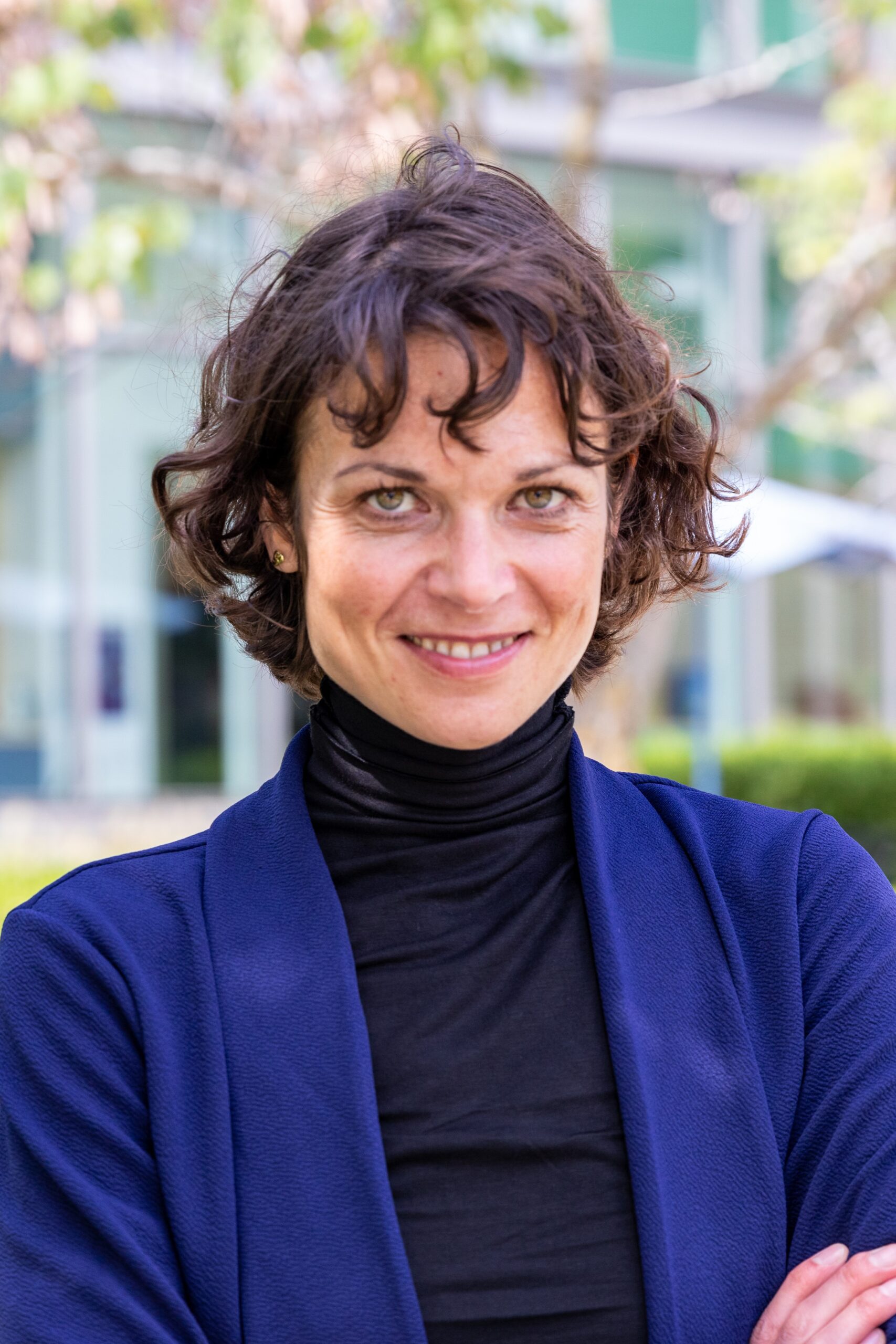
Claudia Loebel
Assistant Professor of Bioengineering, University of Pennsylvania
Core Faculty, Penn Center for Precision Engineering for Health
Research Focus
The Loebel lab develops biomaterials and engineering technologies to improve our understanding of how cells interact with their extracellular microenvironment. We probe how cells physically interact and remodel their environment towards the design of extracellular landscape models to predict and direct cell fate. By applying in vitro and in vivo models, our goal is to probe tissue regeneration and repair in diseases such as cancer and fibrotic disorders, and with a particular focus on the pulmonary system.
Education
M.D. Martin-Luther University of Halle-Wittenberg, Germany, 2011
Ph.D. Health Sciences and Technology, Swiss Federal Institute of Technology (ETH) Zurich, Switzerland, 2016
Awards
2024 Young Innovator of Cellular and Molecular Bioengineering
2023 Packard Fellowship for Science and Engineering
2021 Biological Sciences Scholar, University of Michigan
2020 Penn Health Tech Pilot Award
2020 NIH NHLBI K99/R00 Pathway to Independence Award
2018 ETH Silver Medal Awardee, ETH Zurich
2017 Julia Polak European Doctoral Award, European Society for Biomaterials
2017 Research Award, Swiss Society for Biomaterials and Regenerative Medicine
2015 Racquel Z. LeGeros Award, European Society for Biomaterials
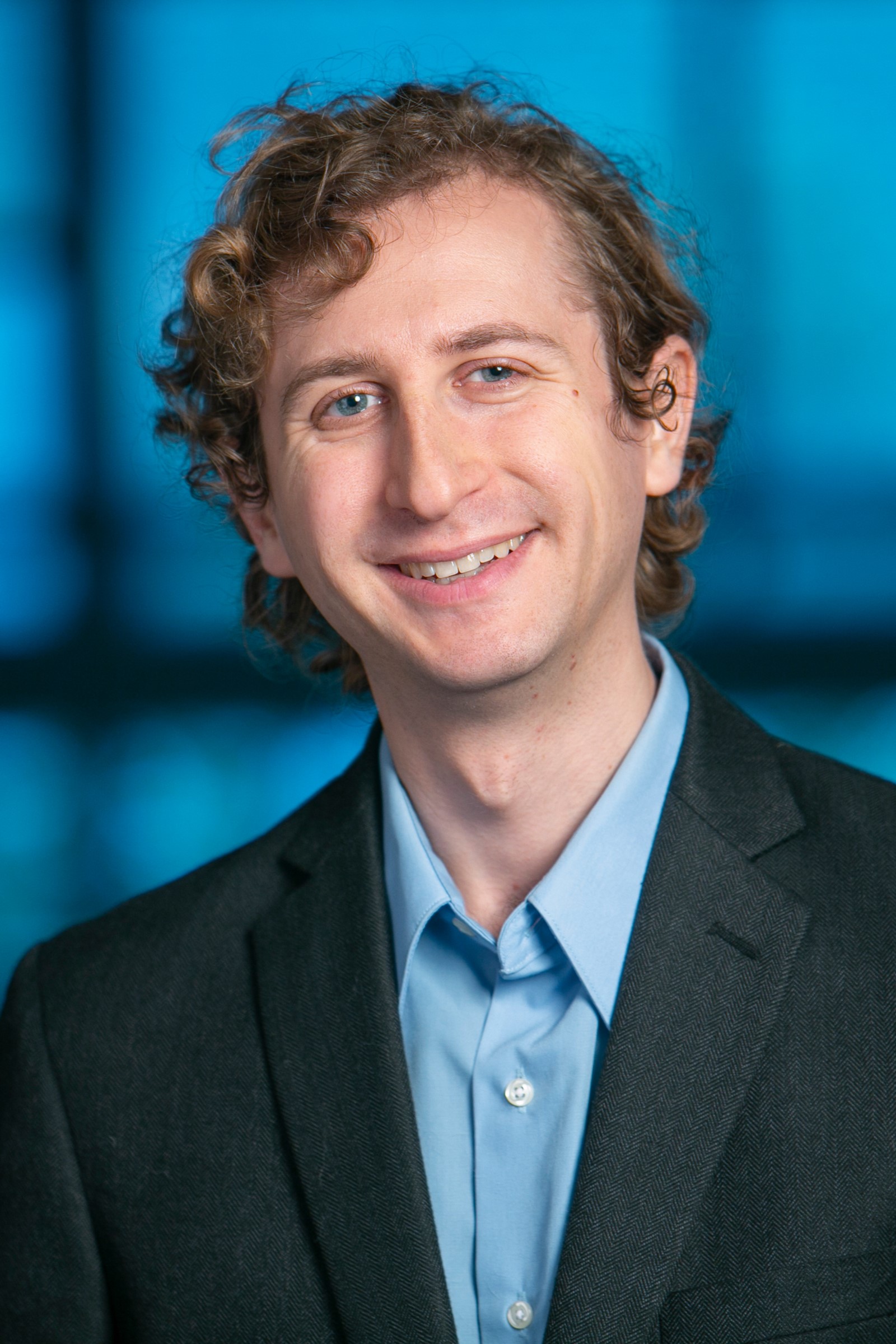
Christopher M. Madl
Assistant Professor of Materials Science and Engineering, University of Pennsylvania
Core Faculty, Penn Center for Precision Engineering for Health
Research Focus
The Madl laboratory develops new hydrogel materials to study the role of biophysical cues from the extracellular environment on tissue dysfunction in aging and disease. The lab employs protein engineering and stimuli-responsive bioorthogonal chemistries to make materials with on-demand tuning of mechanical and microstructural cues. The lab is particularly interested in how altered mechanical signals in aged skeletal muscle and nervous system tissues lead to impaired cellular function.
Education
B.A. Engineering Sciences, Harvard University, 2012
M.S. Engineering Sciences, Harvard University, 2012
Ph.D. Bioengineering, Stanford University, 2017
Awards
2015 NIH NRSA Predoctoral Fellowship (F31)
2016 Siebel Scholars Class of 2017
2019 Life Sciences Research Foundation (LSRF) Postdoctoral Fellowship
2021 NIH K99/R00 Pathway to Independence Award

David F. Meaney
Senior Associate Dean, Penn Engineering
Solomon R. Pollack Professor of Bioengineering, University of Pennsylvania
Core Faculty, Penn Center for Precision Engineering for Health
Research Focus
Concussion is highly prevalent. Unfortunately, treatments for concussion are not. As a team, The Molecular Neuroengineering Lab studies concussion (aka mild traumatic brain injury) with a variety of methods and tools that include in vivo, in vitro, and in silico models of injury. Leveraging diverse modalities gives them a unique ability to draw connections between injury-induced changes that occur at various spatial scales, ranging from the individual cell to the neuronal circuit to the whole brain. With this knowledge, they can develop and test novel strategies to prevent and mitigate concussion.
Education
B.S.E. Biomedical Engineering, Rensselaer Polytechnic Institute, 1987
M.S.E. Bioengineering, University of Pennsylvania, 1989
Ph.D. Bioengineering, University of Pennsylvania, 1991
Awards
1998 National Science Foundation CAREER Award
2001 American Society of Mechanical Engineering YC Fung Young Investigator Award
2014 Trustees’ Council of Penn Women Provost’s Award

Michael Mitchell
Associate Professor of Bioengineering, University of Pennsylvania
Group Leader, Lipid Nanoparticle Delivery Systems, Penn Institute for RNA Innovation
Director, Lipid Nanoparticle Synthesis Core, Penn Institute for RNA Innovation
Core Faculty, Penn Center for Precision Engineering for Health
Research Focus
Michael J. Mitchell is an Associate Professor of Bioengineering at the University of Pennsylvania, and the Lipid Nanoparticle Delivery Systems Group Leader at the Penn Institute for RNA Innovation. He received a BE in Biomedical Engineering from Stevens Institute of Technology in 2009, a PhD in Biomedical Engineering with Prof. Michael King from Cornell University in 2014. He was a Postdoctoral Fellow in Chemical Engineering with Prof. Robert Langer at MIT from 2014-2017, prior to pursuing his independent career at University of Pennsylvania in 2018. The Mitchell lab’s research broadly lies at the interface of biomaterials science, drug delivery, and cellular and molecular bioengineering to fundamentally understand and therapeutically target biological barriers. Specifically, his lab engineers new lipid and polymeric nanoparticle platforms for the delivery of different nucleic acid modalities to target cells and tissues across the body. His lab applies their research findings and the technologies developed to a range of human health applications, including the engineering of CAR T cells for cancer immunotherapy, mRNA vaccines, genome editing, cardiovascular disease, and in utero therapeutics to treat disease before birth.
Mitchell has received numerous awards as an independent investigator, including the National Institutes of Health Director’s New Innovator Award, the Rising Star Award from the Biomedical Engineering Society, the Career Award at the Scientific Interface from the Burroughs Wellcome Fund, and the Research Scholar Award from the American Cancer Society. In 2022 Mitchell was named “Emerging Inventor for the Year” by Penn’s for Innovation in recognition for his lipid nanoparticle technologies and received the Young Investigator Award from the Society for Biomaterials, the T. Nagai Award from the Controlled Release Society, the National Science Foundation CAREER Award, and was named a 2023 Young Innovator in Cellular and Molecular Bioengineering. He is a co-founder of Liberate Bio, a biotechnology company focused on developing non-viral delivery technologies for genetic medicines, and serves on the Scientific Advisory Board of numerous biotechnology companies.
Education
B.E. Biomedical Engineering, Stevens Institute of Technology, 2009
M.E. Materials Science and Engineering, Stevens Institute of Technology, 2009
M.S. Biomedical Engineering, Cornell University, 2012
Ph.D. Biomedical Engineering, Cornell University, 2014
Awards
2014-2017 NIH NCI Ruth L. Kirschstein Postdoctoral Fellowship (F32), National Cancer Institute
2017 Burroughs Wellcome Fund Career Award at the Scientific Interface
2018 National Institutes of Health Director’s New Innovator Award
2019 Controlled Release Society T. Nagai Award
2021 Emerging Inventor of the Year, Penn Center for Innovation
2022 National Science Foundation CAREER Award
2022 Society for Biomaterials Young Investigator Award
2023 Cellular and Molecular Bioengineering Young Innovator Award

Noor Momin
Stephenson Foundation Term Assistant Professor of Innovation, University of Pennsylvania
Core Faculty, Penn Center for Precision Engineering for Health
Research Focus
The Momin lab investigates the immune system in cardiovascular diseases including heart failure, atherosclerosis, and arrhythmia. We seek to develop novel diagnostics and treatments for these diseases by leveraging our understanding of cardiovascular immunology, protein engineering, and pharmacokinetic modeling.
Education
B.S. Biomedical Engineering, University of Texas at Austin, 2015
Ph.D. Biological Engineering, Massachusetts Institute of Technology, 2021
Awards
2021 National Siebel Scholar in Bioengineering
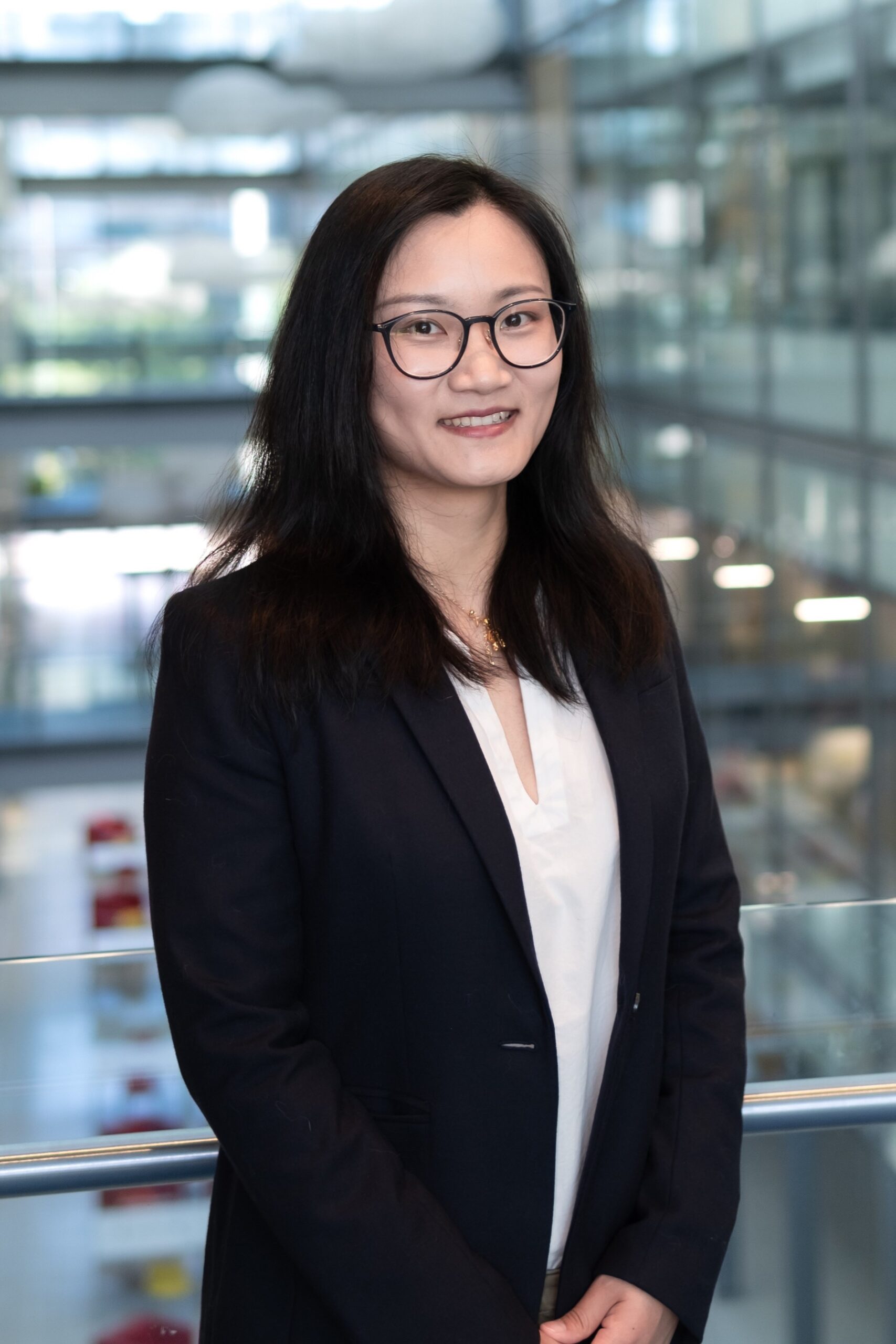
Yihui Shen
Assistant Professor of Bioengineering, University of Pennsylvania
Core Faculty, Penn Center for Precision Engineering for Health
Research Focus
The Shen laboratory works at the interface of optical imaging and systems biology of metabolism. We aim to innovate tools for metabolic measurement at single cell level, and to apply them to probe metabolism in tissue, tumor, and microbial communities. We are also interested in how metabolic programs are controlled to support immune cell proliferation and function, and how that is impacted by tumor microenvironment.
Education
B.A. Chemistry, Peking University, 2012
Ph.D. Chemistry, Columbia University, 2017
Awards
HHMI International Student Research Fellowship
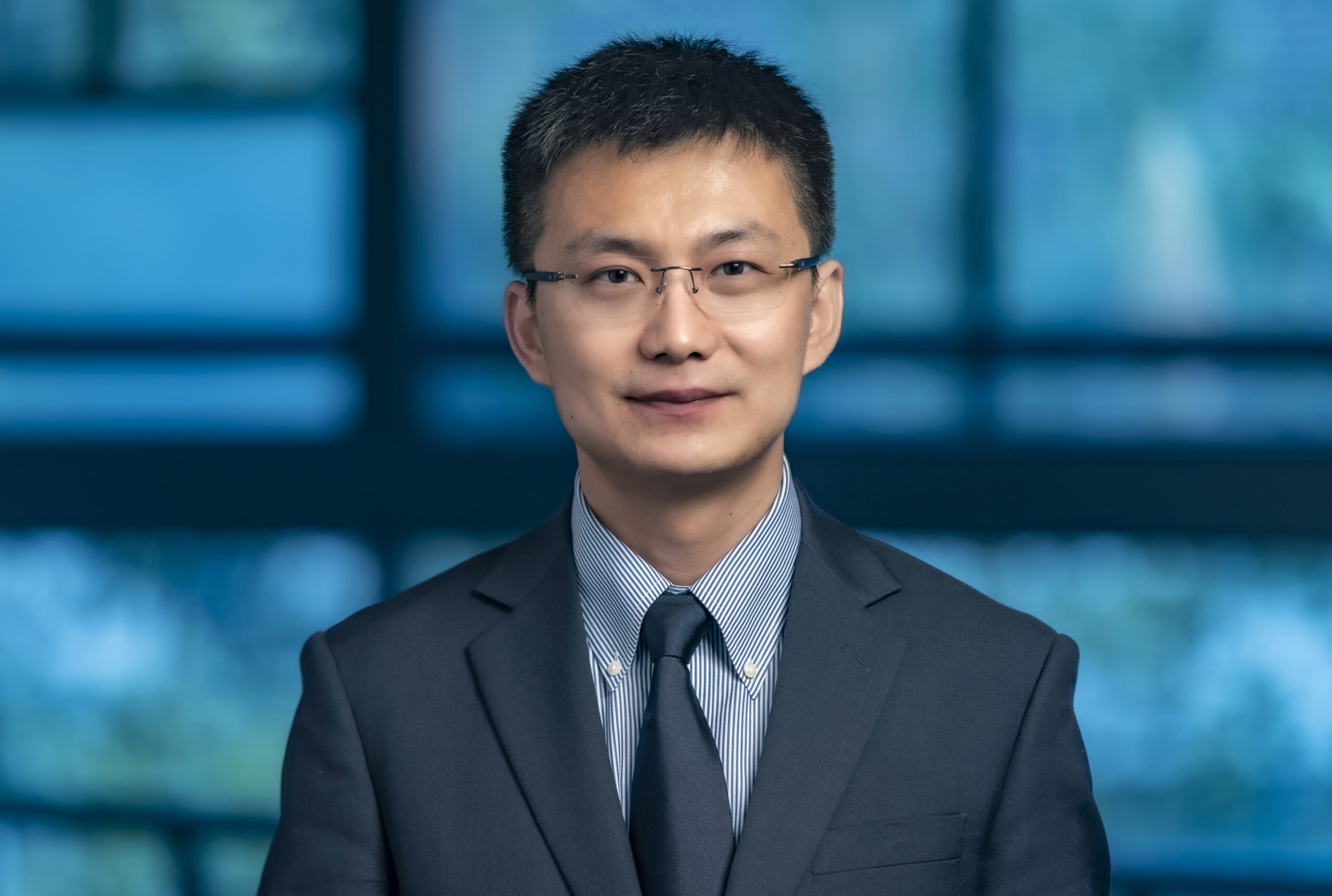
Shujie Yang
Assistant Professor of Mechanical Engineering and Applied Mechanics, University of Pennsylvania
Core Faculty, Penn Center for Precision Engineering for Health
Research Focus
The Yang Lab conducts research at the intersection of acoustics, microfluidics, and biomechanics, with a strong focus on developing novel micro/nano technologies for diverse applications in engineering and medicine. By leveraging a fundamental understanding of physics and mechanics, we strive to engineer innovative biomedical devices and conduct pioneering research to address critical challenges in medicine.
Education
B.S. Mechanical Design Manufacturing and Automation, Harbin Institute of Technology, 2011
M.S. Integrated Circuit Engineering, Tsinghua University, 2015
Ph.D. Mechanical Engineering and Materials Science, Duke University, 2021
Awards
2016 MEMS Departmental Fellowship, Duke University
2022 Outstanding Dissertation Award, Duke University
2022 Postdoctoral Professional Development Award, Duke University
2023 Microgrant Award, Brigham Research Institute

